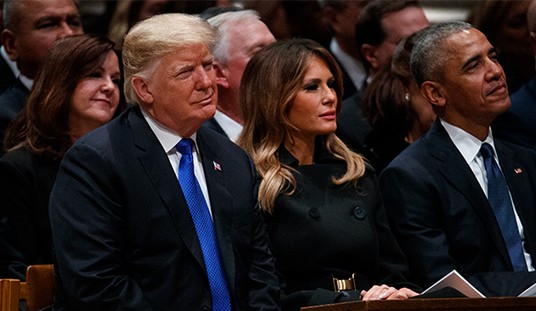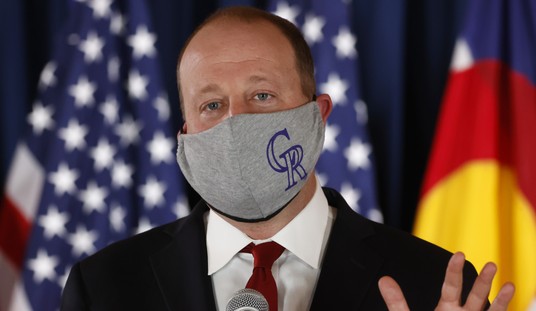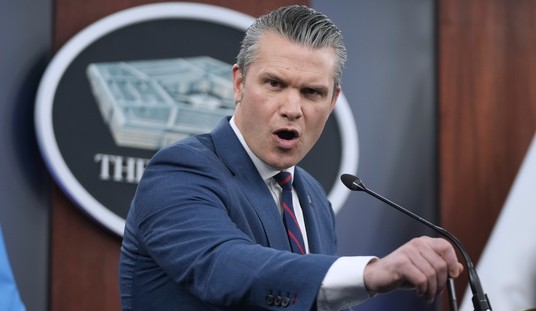=========
=========
Promoted from the diaries by streiff. Promotion does not imply endorsement.
=========
=========
The esteemed Bill Kristol returns to his neo-conservative roots:
1. A short thread on regime change
Yesterday I asked "Shouldn’t an important U.S. foreign policy goal of the next couple of decades be regime change in China?" The question implies that I think the right answer is Yes. I gather there's been a bit of a reaction to this suggestion.— Bill Kristol (@BillKristol) November 24, 2018
This was the first of a series of six tweets, and I’ll just copy and paste the whole thing as one argument, to make things simpler:
A short thread on regime change
Yesterday I asked “Shouldn’t an important U.S. foreign policy goal of the next couple of decades be regime change in China?” The question implies that I think the right answer is Yes. I gather there’s been a bit of a reaction to this suggestion.
I’m glad to have stimulated some debate, and I hope some re-thinking. I’ll put my position simply. The case for regime change shouldn’t really be controversial. The U.S. at its best has always stood for the proposition that all people everywhere deserve to be free.
Now it goes without saying there are practical limits to what we can and should do to make this happen. Much of what we do is simply to serve as an example. We use diplomacy, public and private, to persuade other nations to move toward freedom. We help civil society abroad.
We sometimes use political or economic pressure. We rarely use and should rarely use military force. And of course we realize that in the real world prudence requires that we be allied with oppressive regimes, sometimes terrible regimes (the Soviet Union), and sometimes for a long time (Saudi Arabia). But surely our ultimate goal, after preserving and securing our and freedom, is to be a force for freedom in the world. And this means changing un-free regimes to free ones, or freer ones. This means regime change, sometimes gradual, sometimes, in the way the world works, sudden. I do think a relatively open embrace of freedom as our goal, and a relatively candid debate over means, would serve the nation well. Such a debate will resolve very few of the particular choices facing us.
Knowing Mr Kristol’s #NeverTrumper ideology, I assume that this is a reflection of President Trump’s continued support of Saudi Arabia, despite the almost certainty that Crown Prince Mohammed bin Salman al Saud ordered the murder of journalist Jamal Khashoggi.
The younger President Bush thought that regime change in Iraq would be a good thing, and apparently believed that it would be quickly accomplished. His father had stopped short of the military conquest, settling for kicking Iraq out of Kuwait, and believing that regime change would be internal, that Saddam Hussein couldn’t survive that humiliating defeat; the elder President Bush guessed wrong, and, as things turned out, so did his son.
President Obama and his minion, Secretary of State Hillary Clinton didn’t start the ‘Arab Spring’ movement, but certainly believed in, and encouraged the regime change to which it led. Yeah, some despots were kicked out, but the ‘cure’ in most cases has been worse than the disease. Yemen turned out so badly that the US has supported Saudi Arabia’s war against it, while Bashir al Assad has managed to hang on to parts of Syria, and a bloody civil war has been fought there since 2011. Thankfully, Da’ish has been mostly defeated in Syria and Iraq, but not until after thousands of innocent people were killed. The war in Afghanistan has virtually eliminated al Qaeda, but that started in 2001, and it’s still going on.¹
Regime change has proven to not always be for the better, and in too many cases, the tiger we know has been replaced by the tiger we don’t know. And Mr Kristol’s notion that “all people everywhere deserve to be free” sounds very nice, to our Western morés, but our experience in Iraq ought to tell us one thing: despite Natan Sharansky’s The Case for Democracy: The Power of Freedom to Overcome Tyranny and Terror, a book which was said to have inspired the younger President Bush, the impulse to freedom and democracy hasn’t seemed to be that prevalent among people who have had no experience with it.
Instead, regime change in Egypt got us the Muslim Brotherhood, which was then ousted by a military government, which still rules today. How, I have to ask, is this better than Hosni Mubarak’s dictatorship was? President Obama called his support of regime change in Libya, was his “worst mistake.”²
Probably failing to plan for the day after, what I think was the right thing to do, in intervening in Libya.
Even the most important, most desired regime change in our post-World War II history, the regime change which ended the old Soviet Union, has not resulted in freedom and democracy, but the replacement of one totalitarian regime with an authoritarian one, with only the slightest pretense of democratic forms.
Freedom and democracy are things which evolved, over time, in the Western nations. Magna Carta was forced on King John in 1215, and a Parliament on which the English kings depended for taxation was created, but Parliamentary supremacy over the monarchy did not really take hold until the end of Queen Victoria’s reign. When Mr Kristol writes that, “The U.S. at its best has always stood for the proposition that all people everywhere deserve to be free,” he is writing about an American ideal, a Western civilization concept that ignores just how long it took for that to evolve in the West; to think that it could spring up in regions which have never had the history behind evolving democracy that Europeans enjoyed over several centuries ignores the lessons of the past.
Of course, we did manage to impose democracy in Japan and South Korea; that took a war in which the Japanese were as defeated as a country could be, its already weak infrastructure destroyed and its fighting aged male population devastated, followed by a military occupation which finished off the surviving ruling class. And we managed to impose democracy in post-war West Germany, though many of the survivors could remember a semblance of democracy under the failed Weimar Republic. But the lesson of those occupations ought to be that the country on which democracy is to be imposed must be totally defeated and devastated in war; does anyone think that such is likely to happen again?
This, I believe, is the thing that the neo-conservatives never learned.
_________________________________
¹ – My older daughter served briefly in Afghanistan, in 2017. She was not in any combat role, but was a Corps of Engineers sergeant and surveyor at Bagram Airbase.
² – I can think of a lot worse mistakes by President Obama, but, to be honest, I believe his entire eight year tenure was American’s worst mistake ever. The only good thing that he accomplished was keeping Hillary Clinton from being elected.















Join the conversation as a VIP Member